I've played the new co-op game Josef Fares revealed at The Game Awards and the level of variety is unreal
Split Fiction could easily be another hit for Hazelight when it releases next year.
Josef Fares and Hazelight Studios aren't normal, and I'm not just talking about the energetic charisma that makes Fares a highlight whenever he's given a mic at The Game Awards. No one does it quite like the Swedish studio: Its games have online support but are designed around split-screen co-op—arguably a relic of videogames past—and are stuffed beyond belief with one-off systems, environments, and minigames, some of which only last minutes.
The studio's next co-op adventure is Split Fiction: Fares just revealed it at The Game Awards, and earlier this week he showed me around a dozen of its levels. I leapt between flying cars, transformed into an otter, became a pig who farts rainbows (when I walked into mud, I was given the option to "wallow"), rolled through a level as a Samus morph ball, competed with Fares to perform downhill hoverboard tricks, got turned into a notebook drawing, piloted a sandworm, and rode a dragon—and that's just the stuff I can talk about.
The basic platforming skills remain constant throughout: low-risk double-jumping, air dashing, wall running, and zipping between grappling targets, where failure doesn't sting much because you just respawn nearby if you fall to your death. I also saw some light combat. Otherwise, though, Split Fiction is full of one-off platforming and puzzle ideas that require two-player solutions, and its premise easily accommodates that variety.
Split Fiction is about a pair of aspiring novelists who are trapped together in a simulation of their fictional sci-fi and fantasy worlds. In one bit, I was switching up gravity's direction as the sci-fi author, but only for her, meaning I could reach places Fares couldn't as the fantasy writer.
We often praise "systems-driven" games for the astonishing variety that can emerge from the clever application of math (to be as reductive as possible), but Hazelight's brute force approach to surprise and delight commands a different kind of respect. There's no magic formula here: You get the sense that the studio just rolls up its sleeves and makes fun stuff without fussing over today's big game development trends.
"One of the big dragons, just that probably took eight months to do," Fares told me, "and you play for 10 minutes."
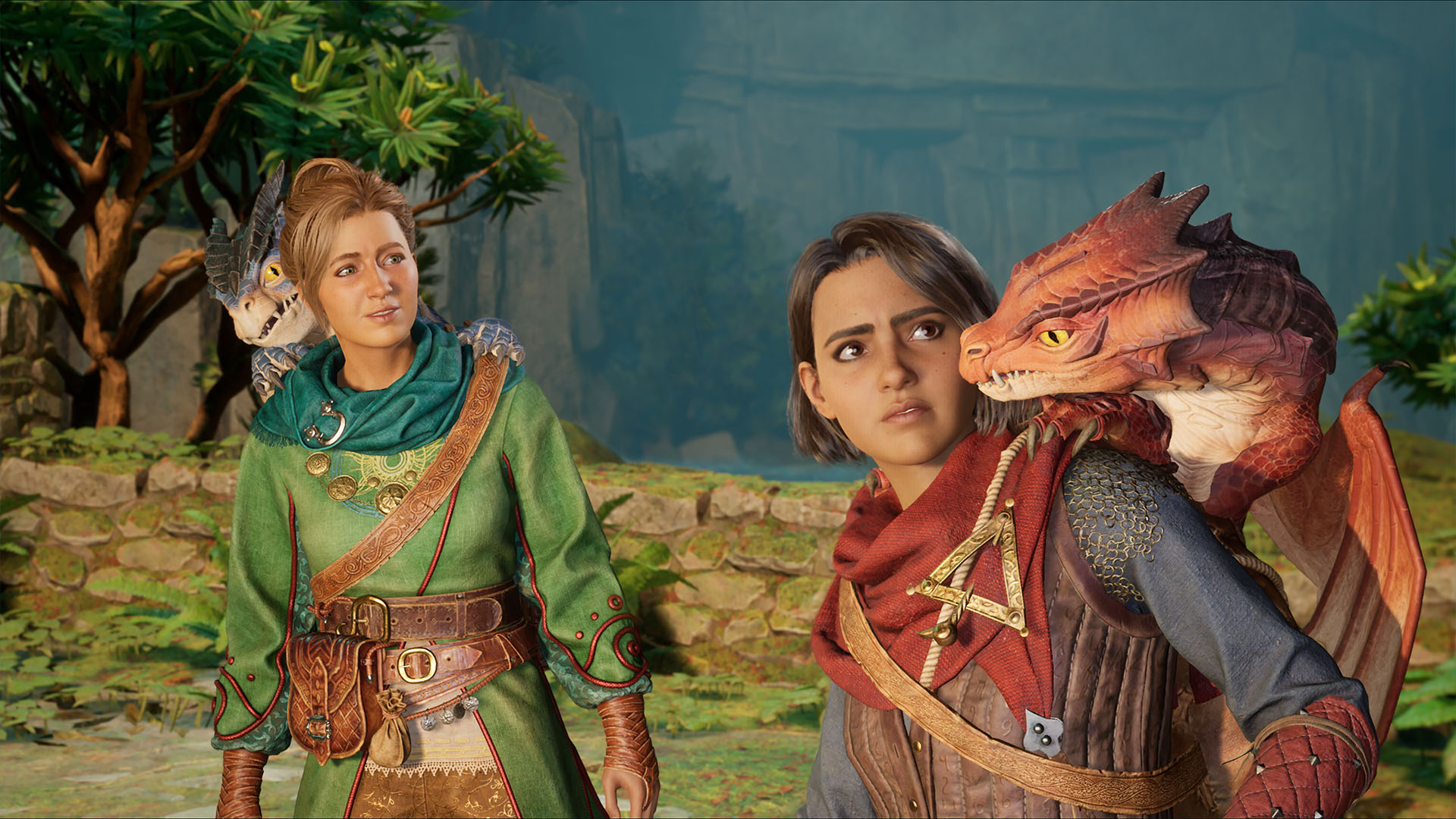
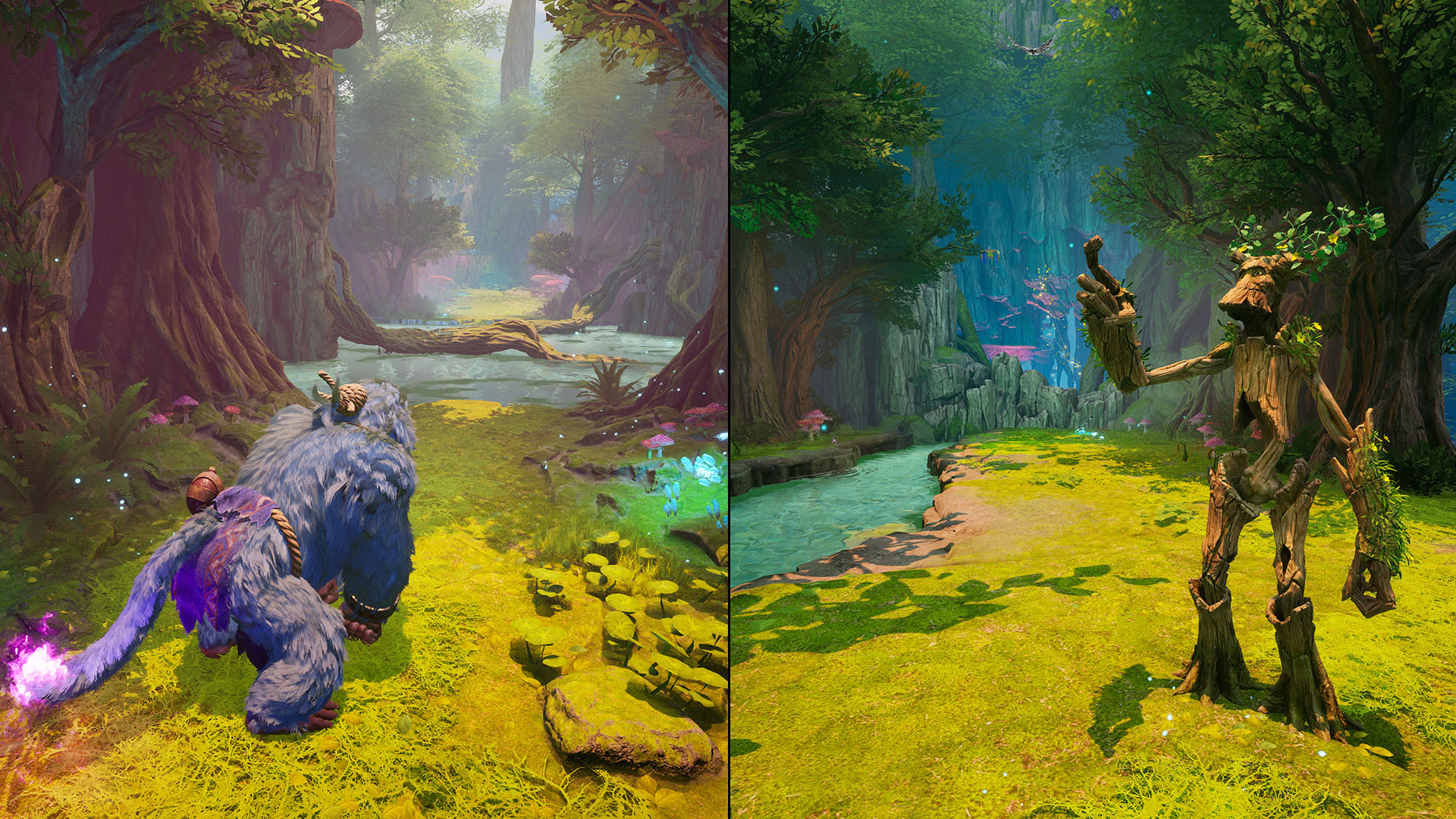
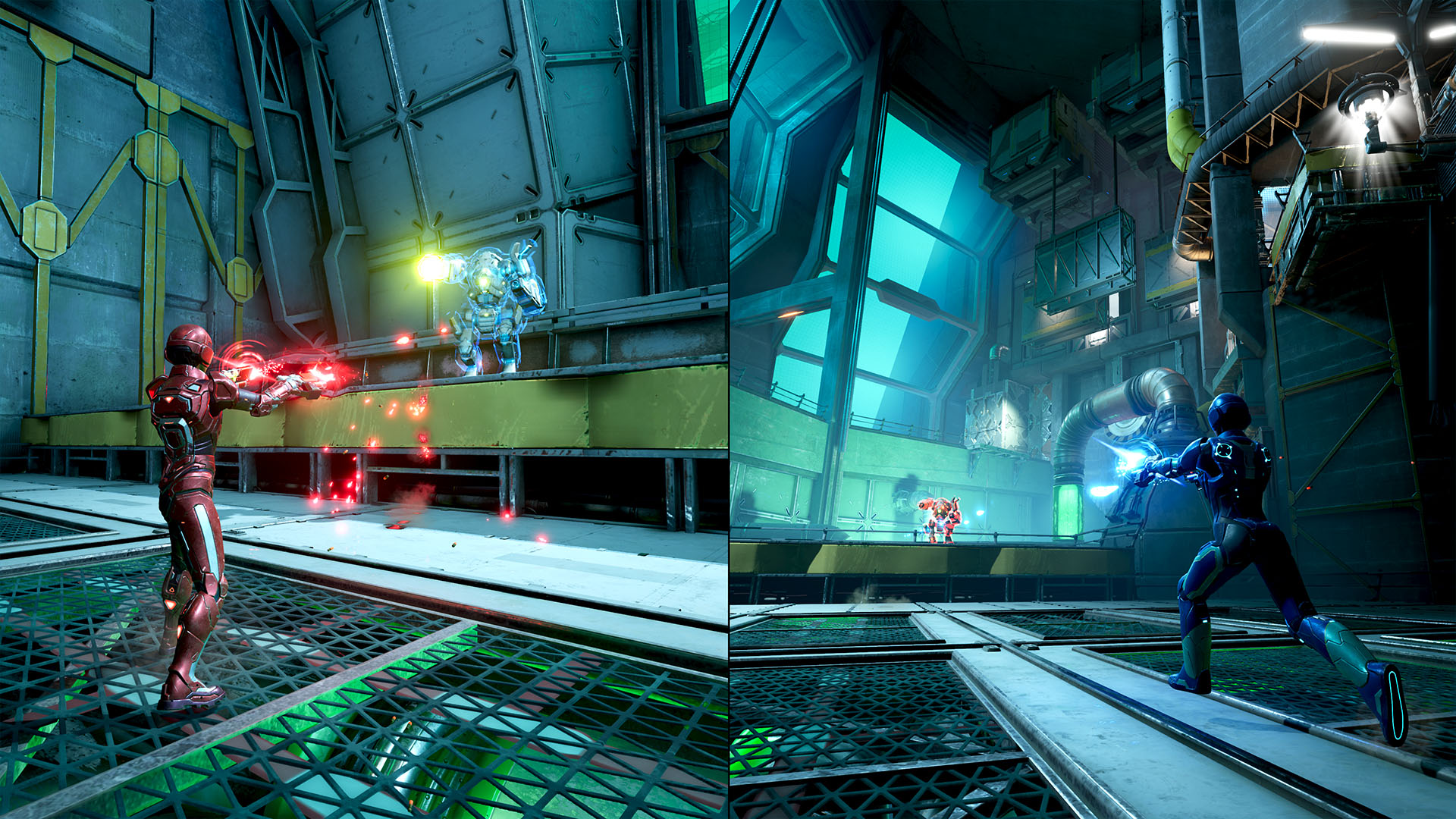
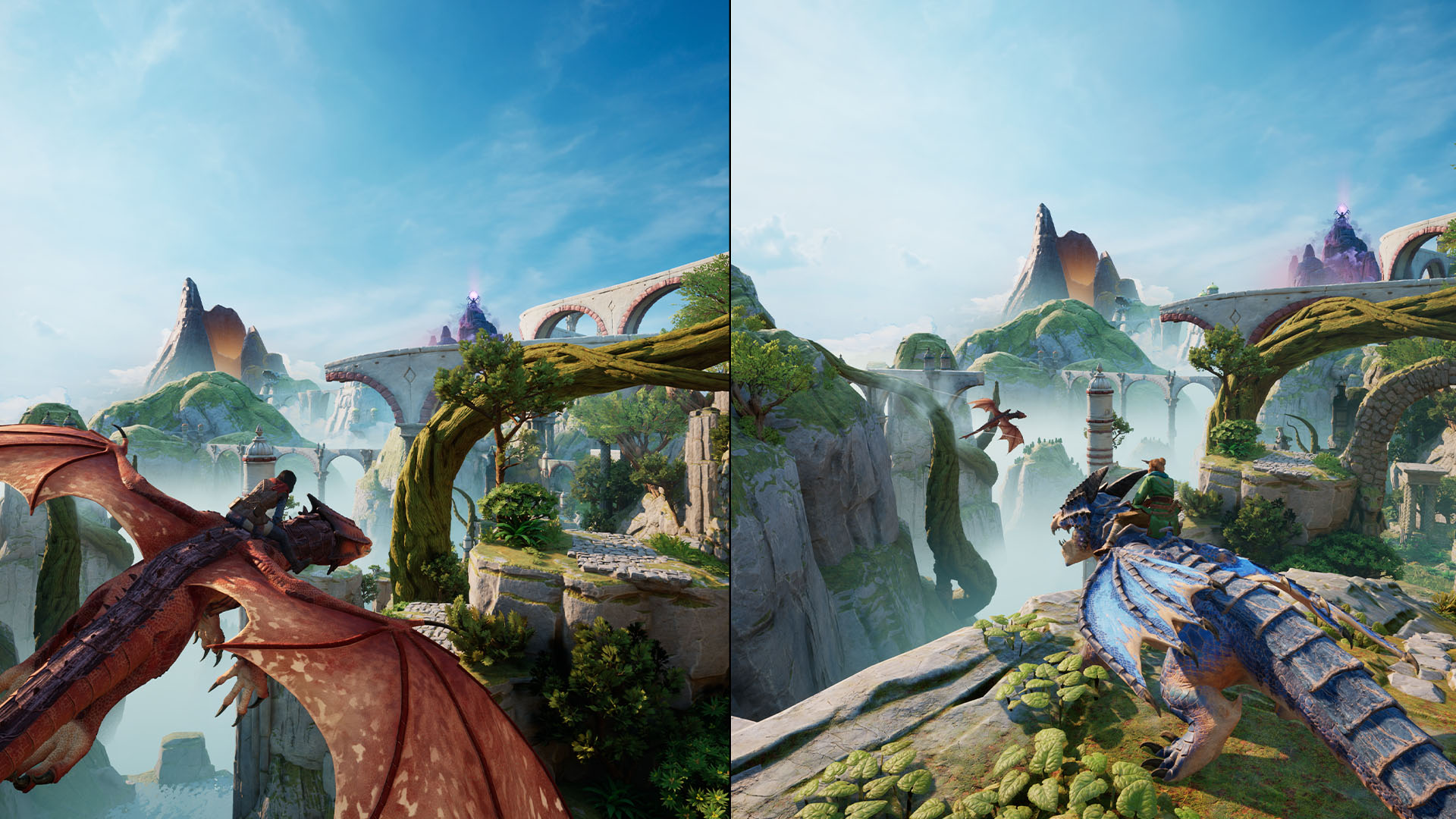

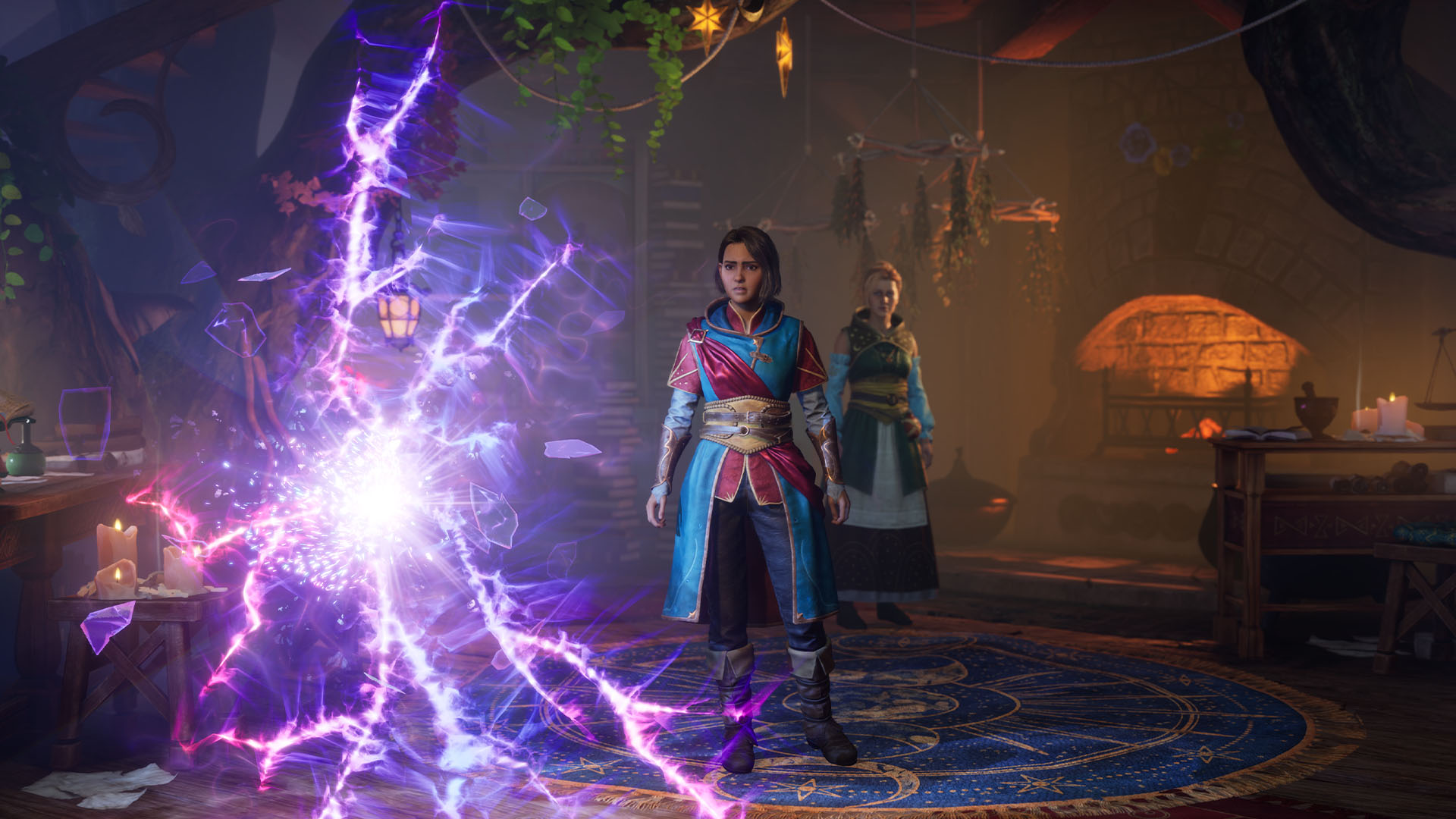
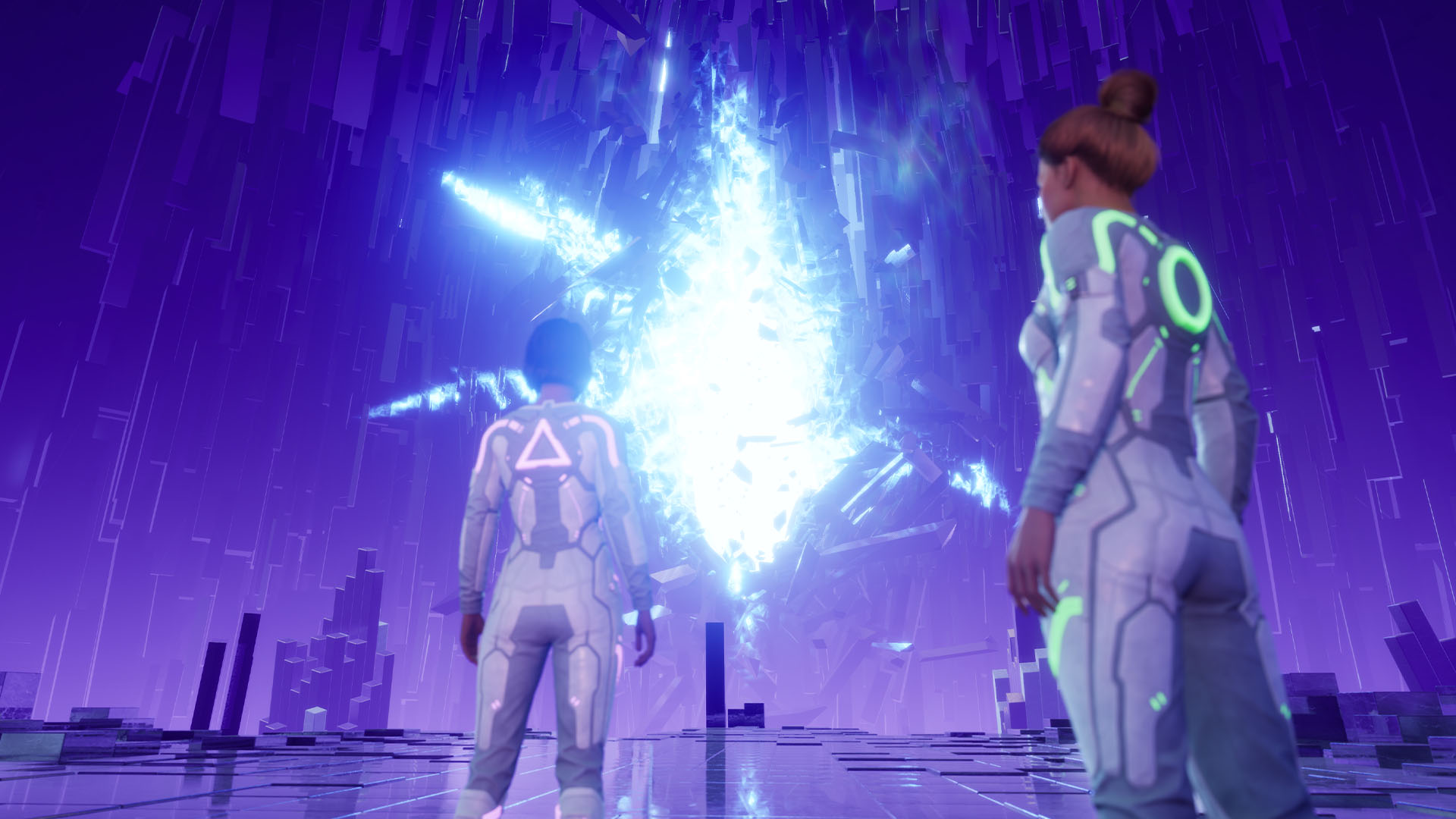
Hazelight's peculiar dedication to co-op-only puzzle platforming might limit its audience, but finding any audience for a game is hard, and It Takes Two sold 20 million copies. With results like that, there's no reason to change course now, but Fares says they aren't getting complacent.
The biggest gaming news, reviews and hardware deals
Keep up to date with the most important stories and the best deals, as picked by the PC Gamer team.
"We want to push the boundaries of what's possible," the director told me. "We want to push what we can do. We fuck shit up without fucking up. Dogs without leashes, going crazy, every idea out there, it doesn't matter who or what, as long as it fits the game, let's go. So it's an extremely creative environment, but we're also very focused, because we did all this in a matter of three-and-a-half years."
Split Fiction is set to release March 6, 2025 on PS5, Xbox Series X/S, and PC via Steam, and will be priced at $50. Hazelight's Friend's Pass system is returning, which allows two people to play together online even if only one owns the game—it essentially brings the economics of local co-op gaming to online gaming.

Tyler grew up in Silicon Valley during the '80s and '90s, playing games like Zork and Arkanoid on early PCs. He was later captivated by Myst, SimCity, Civilization, Command & Conquer, all the shooters they call "boomer shooters" now, and PS1 classic Bushido Blade (that's right: he had Bleem!). Tyler joined PC Gamer in 2011, and today he's focused on the site's news coverage. His hobbies include amateur boxing and adding to his 1,200-plus hours in Rocket League.


